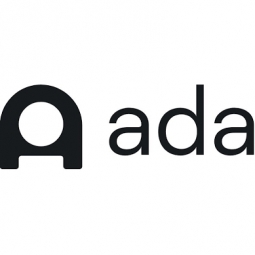用例
- 对话机器人
- 语音识别
关于客户
Moka 是一家直接面向消费者的金融科技公司,致力于帮助加拿大人实现其财务目标。他们有一个移动应用程序,提供自动投资、智能储蓄计划和有价值的奖励。 Moka 拥有庞大的加拿大千禧一代用户群。
挑战
Moka 是一家直接面向消费者的金融科技公司,由于快速增长而经历了成长的阵痛,需要扩大其客户支持。他们缺乏强大的支持功能,无法大规模提供出色的客户体验。
解决方案
Moka 与 Ada 合作,在 5 周内推出了对话式 AI 聊天机器人。聊天机器人位于支持渠道的顶部,提供自助服务和路由选项。 API 用于自动提交票证。该机器人使用客户成功团队的专业知识进行了培训,识别率高达 95%。自动化优先的 CX 策略使客户能够 24/7 自助服务,并将复杂的案例升级为实时聊天代理。
运营影响
数量效益

Case Study missing?
Start adding your own!
Register with your work email and create a new case study profile for your business.
相关案例.

Case Study
HSBC's Transition to Conversational Banking through Intelligent Automation
HSBC, one of the world's largest banking and financial services organizations, was facing a challenge with its customer service operations. With over 19,000 customer service agents, the bank was dealing with a high volume of repetitive tasks that put pressure on its agents. The traditional career path in the contact center world was also leading to inevitable attrition, as it was defined as agent → team manager → department manager → operations manager → head of contact centre. This lack of opportunity as the field narrows held back the chance of reaching the highest possible customer satisfaction with every interaction. Furthermore, HSBC was planning to shift towards Conversational Banking, which was expected to grow interactions considerably and require conversational experts to manage the chatbots.
Case Study
AB InBev: Optimizing Beer Manufacturing with Machine Learning
Anheuser-Busch InBev (AB InBev), a global corporation known for its popular beer brands like Budweiser, Corona, and Stella Artois, was facing challenges in optimizing its beer filtration process. The filtration process, which is crucial for achieving the best beer taste and meeting brand-required turbidity levels, involves many unpredictable variables. The existing technology could only handle basic logic, using meters to monitor and react to adverse conditions such as a change in pressure. AB InBev recognized the potential of machine learning (ML) and artificial intelligence (AI) in leveraging a larger dataset to better predict and prevent potential issues during filtration. However, the company needed a partnership and provider that could enable them to deploy ML quickly and effectively.
Case Study
Domino’s Enhances Customer Experience with Dialogflow’s Conversational Technology
Domino’s, a global pizza restaurant chain, has been at the forefront of digital innovation, offering customers the ability to order pizzas via 'Dom', an ordering bot available online and through the company’s mobile apps. However, with the changing consumer behavior and the need to innovate, the company faced the challenge of building rich conversational experiences powered by natural language understanding (NLU) and machine learning. The company needed a solution that could scale and accommodate the number of intents needed for a complex ordering process. The challenge was to account for the numerous directions a customer could take when ordering from their extensive menu.
Case Study
Dunzo's Transformation: Enhancing Customer Service with AI and Chatbots
Dunzo, an all-in-one 24x7 delivery platform, was facing challenges in maintaining its high standards of customer service as it scaled operations. The company, which fulfills over 2 million orders per month across India’s top 8 cities, was looking for a high-performing tool to handle high volume and support their load. The customer service team realized that 60% of the order-related queries they received were generic, and they wanted to reduce the number of chats that go to an agent. They needed a platform that could provide structured team performance reports to improve their customer experience. Dunzo also wanted to offer service through a familiar and convenient channel for its predominantly GenZ and Millennial customer base, for whom messaging is second nature.

Case Study
SAP's Accelerated Deal Closure through Process Automation
SAP was grappling with the challenge of managing an increasing number of cloud deals. The rise in configurable cloud component deals necessitated a reduction in manual activity and a scaling up and automation of processes for order management, master data maintenance, and financial reporting. The high volume of cloud deals required a swift and efficient response, which was difficult to achieve with the existing manual processes. The challenge was to automate these processes to meet the growing demand and improve efficiency.

Case Study
Vodafone Hungary's Transformation in Order Management with TCS HOBS
Vodafone Hungary, after acquiring UPC Hungary, was faced with the challenge of transforming, rationalizing, and consolidating its complex IT and operational support system (OSS) landscape. The company needed a middleware solution that could manage its nearly one million subscribers and cater to fixed voice services as well as cable and gigabit passive optical networks (GPON) network based broadband services. Other transformation goals included bulk order management, legacy service migration, maintenance of service and resource inventory, and fixed IP address management. The challenge was to simplify the order orchestration process and streamline the operations.







